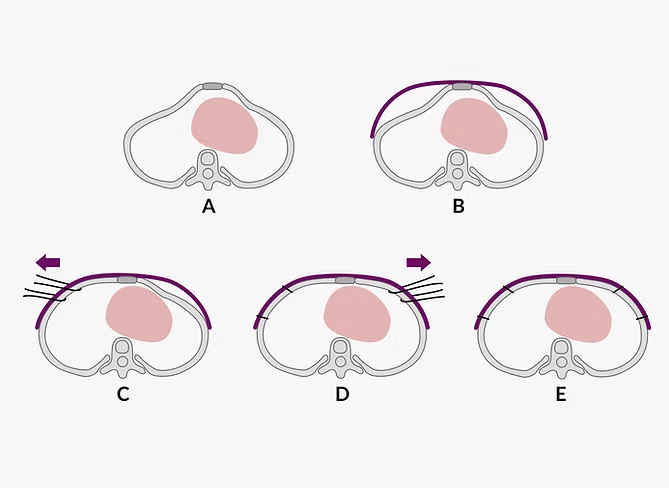Barrel chest, a condition characterized by an abnormal increase in the anterior-posterior diameter of the chest, can manifest in two primary forms: primary and secondary barrel chest. Understanding the barrel chest symptoms associated with each type is essential for effective diagnosis and management.
Primary Barrel Chest: Subtle Indicators
Patients with primary barrel chest typically do not exhibit noticeable symptoms. This form is often benign and may go undetected unless identified during a physical examination. The lack of significant symptoms can make it challenging for individuals to recognize the condition on their own. As a result, primary barrel chest is often diagnosed incidentally during assessments for unrelated health issues.
Secondary Barrel Chest: Respiratory Challenges
In contrast, secondary barrel chest is often linked to underlying respiratory diseases, leading to more pronounced symptoms. Individuals with this condition may experience a range of respiratory difficulties, including:
Coughing: Persistent coughing can occur as the body attempts to clear the airways.
Hemoptysis: In more severe cases, patients may cough up blood, indicating a potential underlying issue.
Chest Pain and Tightness: Discomfort in the chest region can manifest, often related to breathing difficulties.
Shortness of Breath: Patients may find it challenging to breathe, particularly during physical exertion.
Breathing Difficulty: Increased effort may be required for normal respiration, affecting overall quality of life.
The Institute of Chest Wall Surgery (ICWS) emphasizes the importance of recognizing these symptoms, especially in patients with secondary barrel chest. Early identification of underlying conditions can lead to timely interventions and improved patient outcomes.
Conclusion
In conclusion, while primary barrel chest may present with few symptoms, secondary barrel chest is often accompanied by significant respiratory challenges. Awareness of these symptoms is crucial for individuals and healthcare providers alike, enabling better management and care.


